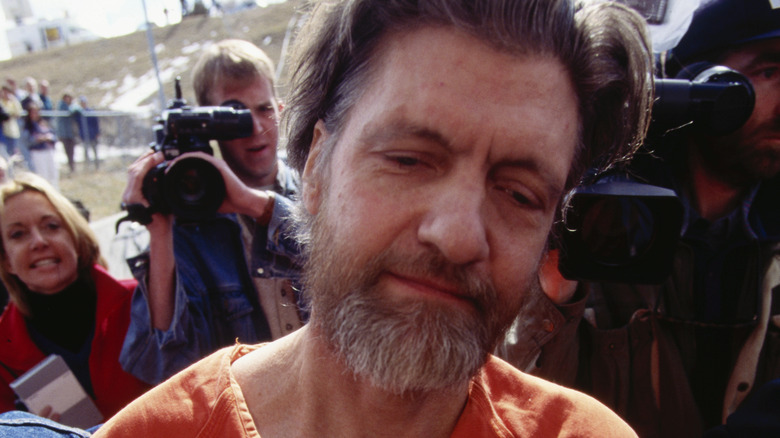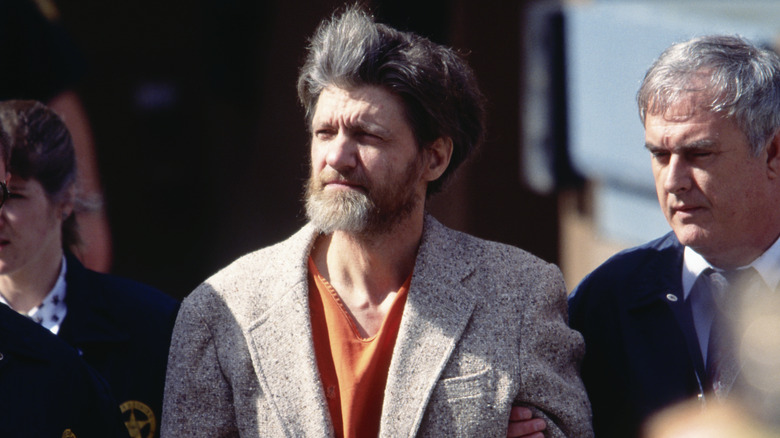Theodore 'Ted' Kaczynski, Unabomber, Dead At 81
Theodore "Ted" Kaczynski, better known as the Unabomber, was found unresponsive in his jail cell on Saturday, June 10, and declared dead a short time later, according to the Associated Press. He was 81 and no cause of death was provided. When he died, Kaczynski was serving four life sentences plus 30 years for a string of mail bombings — 16 in total — from the late 1970s through the mid-1990s, which captured headlines worldwide. Several of Kaczynski's targets, all academics at American universities, were seriously injured in the attacks. Three people were killed, ABC News reports.
Along with Kaczynski's reign of terror, in 1995, The Washington Post and The New York Times published a lengthy manifesto outlining his anti-technological motivations for the bombings, while also heavily criticizing modern life. The publications were reluctant to spread Kaczynski's extremist viewpoints, but he threatened to continue bombing if his writings were not released. Some bombs were sent through the mail, while Kaczynski planted others. He pleaded guilty on all charges against him and denied he was mentally unwell. "I'm confident that I'm sane," Kaczynski said.
Kaczynski died at a North Carolina federal prison medical center after serving his sentence at a Supermax prison facility in Colorado. He was reportedly in poor health before he died.
Kaczynski dubbed the 'Unabomber' because he targeted universities
Ted Kaczynski was nicknamed the Unabomber because he focused his violence against American universities, PBS News Hour reports. However, one Kaczynski bomb went off aboard an American Airlines flight, causing smoke inhalation injuries. Kaczynski himself was a Harvard and University of Michigan graduate who taught math for a time at the university level before rejecting society and living off the grid. After the Unabomber manifesto was published in The Times and Post at the urging of law enforcement, Kaczynki's brother and sister-in-law noticed a familiar tone and suspected their relative could be behind the bombings.
After a roughly two-decade manhunt, in 1996, Kaczynski was arrested at a cabin in a remote area of Montana he built himself, according to The New York Times. He had foregone all modern amenities and was living a subsistence lifestyle. In his writings, Kaczynski blamed the isolation of modern life and the rise of technology for his actions. Kaczynski's defense cited evidence of schizophrenia, which he rejected. The Unabomber even attempted to defend himself at the trial, The New York Times reported in 1998. In earlier writings from 1971, Kaczynski explained his actions: "I act merely from a desire for revenge," he said (via AP News).

